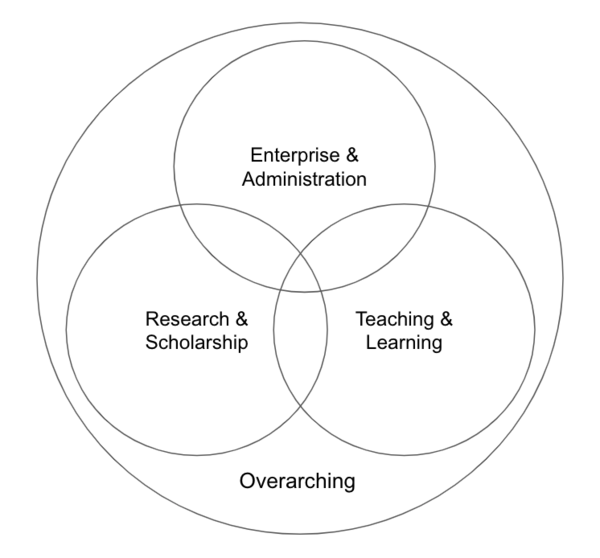AI Recommendations
Download the Full Report
The task force published the full report on May 1, 2024.
Download Final Report and Recommendations [PDF, 232k]Executive Summary
The creative power of generative artificial intelligence (AI) is unprecedented. New capabilities to automate tasks and generate unique content, with both beneficial and harmful outcomes, are being developed with increasing speed. The duty to understand, engage with, and harness generative AI is shared across every discipline and department on campus. Notre Dame’s mission compels us to approach generative AI as an opportunity to innovate and empower humankind while taking into account our responsibility to lead ethically, protect our earthly home, and care for the common good of humanity.
Notre Dame’s Generative AI Task Force (GAIT) was formed in the fall of 2023 as an interdisciplinary working group to explore and assess the potential benefits and risks associated with generative AI tools and make recommendations to University leadership for implementation.
The task force recommends that Notre Dame faculty, students, and staff interaction with generative AI be guided by the principles established by The Rome Call for AI Ethics. These principles are transparency, inclusion, responsibility, impartiality, reliability, security, and privacy. Furthermore, based on our institutional mission, the University should interact with generative AI in ways that live out our educational mission, engage in innovation and experimentation, and care for the common good.
The task force drafted overarching recommendations for campus as well as recommendations for teaching and learning, research and scholarship, and enterprise and administrative.

Recommendations
The committee focused its recommendations on the areas of teaching and learning, research and scholarship, and enterprise and administration, along with two overarching institutional recommendations. These recommendations, despite being categorized by domain, cannot be viewed in isolation. They form an ecosystem, interdependent on each other through shared resources and desired results.
Recommendations Summary
| Overarching Recommendations | Timeframe | Coordinating office(s) |
|---|---|---|
|
Ongoing | OIT, NDR, NDL, and Hesburgh Libraries |
|
Ongoing | OIT, NDR, NDL |
| Teaching and Learning Recommendations | Timeframe | Coordinating office(s) | Priority (H,M,L) |
|---|---|---|---|
|
Spring/Fall 2024 | NDL, colleges, schools | H |
|
Spring/Fall 2024 | NDL, TLT, Hesburgh Libraries | H |
|
Spring/Fall 2024 | NDL, Academic Standards, colleges, schools, OIT | M |
| Research and Scholarship Recommendations | Timeframe | Coordinating office(s) | Priority (H,M,L) |
|---|---|---|---|
|
Ongoing | NDR, Tech Ethics Ctr | H |
|
Ongoing | NDR, CRC, CSSR, NFCDS | H |
|
Ongoing | NDR, CRC, and OIT | M |
| Enterprise and Administrative Recommendations | Timeframe | Coordinating office(s) | Priority (H,M,L) |
|---|---|---|---|
|
Spring/Summer 2024 | OIT, OGC | H |
|
Spring/Summer 2024 | OIT, OGC | H |
|
TBD | OIT | M |
|
TBD | OIT, CRC | M |